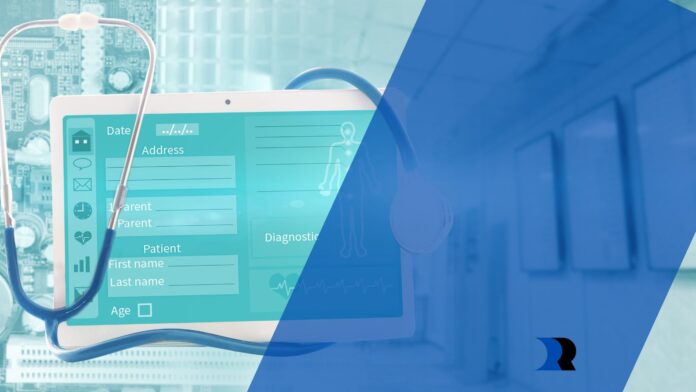Today’s fast-paced and technology-driven world has made the healthcare industry heavily dependent on efficient IT management to guarantee the delivery of high-quality patient care and streamline operations. Effective IT management is pivotal in healthcare, enabling organizations to enhance patient outcomes, safeguard sensitive data, and optimize their overall performance. This article delves into five compelling reasons why managed IT services are indispensable in the healthcare industry.
Enhanced Patient Care and Safety
Efficient IT management enhances patient care and safety through the prompt accessibility of crucial patient information by healthcare professionals. Electronic Health Records (EHRs) and Electronic Medical Records (EMRs) securely store patient data, ensuring easy access for authorized personnel. With IT management in place, healthcare providers can access patient histories, medication records, and test results instantly, reducing the risk of errors and enhancing the quality of care. Additionally, IT systems can aid in the real-time monitoring of patients in critical conditions. For instance, intensive care units depend on IT infrastructure to track vital signs, ensuring that healthcare providers can respond swiftly to any adverse changes. Integrating IT into patient care processes helps reduce medical errors, improve diagnostic accuracy, and save lives.
Data Security and Compliance
The healthcare industry handles vast amounts of sensitive patient data, making data security a paramount concern. Comprehensive IT management incorporates robust security protocols to shield patient data from unauthorized access, data breaches, and cyber threats. IT professionals implement encryption, firewalls, and access controls to safeguard patient records. Furthermore, IT management is pivotal in ensuring healthcare organizations adhere to regulatory mandates. Compliance with these regulations is imperative, as it protects against substantial penalties and legal ramifications. IT management teams regularly update security protocols and perform audits to ensure healthcare facilities comply with data protection laws, thus bolstering the security and confidentiality of patient information and fostering trust among patients and stakeholders.
Operational Efficiency and Cost Savings
In an era of increasing healthcare costs, efficient IT management services help organizations optimize their operational processes and reduce expenses. IT systems automate administrative tasks, such as appointment scheduling and billing, streamlining workflows, and minimizing errors. This not only improves operational efficiency but also minimizes administrative costs.

Furthermore, IT management facilitates the implementation of telemedicine and remote patient monitoring, which can reduce the need for physical office visits and hospitalizations. This, in turn, lowers healthcare costs for both patients and providers. Additionally, IT management helps healthcare organizations track and manage their inventory effectively, ensuring that critical supplies are available when needed, reducing wastage, and lowering costs.
Research and Innovation
Research and innovation are the lifeblood of the healthcare industry. Effective IT management becomes even more vital with the rapid emergence of new treatments, medications, and technologies. It provides the necessary infrastructure for data collection and analysis and facilitates the integration of artificial intelligence and machine learning algorithms, further enhancing research capabilities. This data-driven approach accelerates the development of groundbreaking therapies and medical advancements. It ensures that healthcare organizations remain at the forefront of innovation, benefiting patients through improved treatment options and enhanced diagnostic capabilities.
Disaster Recovery and Business Continuity
In healthcare, where every moment counts, downtime is not an option. Effective IT management includes robust disaster recovery and business continuity planning to ensure that healthcare facilities can continue operating seamlessly despite the unforeseen disruptions that may arise, such as natural disasters or cyberattacks. IT experts implement thorough backup systems, utilize offsite data storage facilities, and establish redundant infrastructure to reduce downtime and mitigate the potential for data loss. These precautions include continuous monitoring and testing of disaster recovery plans to guarantee their effectiveness. In the unfortunate event of a disaster, healthcare organizations can swiftly and efficiently recover their IT systems, thus assuring that patient care remains uninterrupted and uncompromised. This unwavering commitment to disaster preparedness not only safeguards patient health but also underscores the critical role of IT management in the healthcare sector.
Conclusion
Managed IT services are indispensable for the healthcare industry, offering benefits that extend beyond the confines of administrative tasks. They enhance patient care and safety, safeguard sensitive data, optimize operations, support research and innovation, and ensure business continuity.

In the continually evolving healthcare environment, effective IT management has become an essential lifeline for healthcare institutions striving to deliver top-tier patient care, control expenditures, and adhere to regulatory mandates. Moreover, as technology advances, IT management’s role in healthcare will become more critical, driving innovation and improving patient care outcomes. Healthcare providers must embrace IT management to remain competitive and deliver the best healthcare services.


